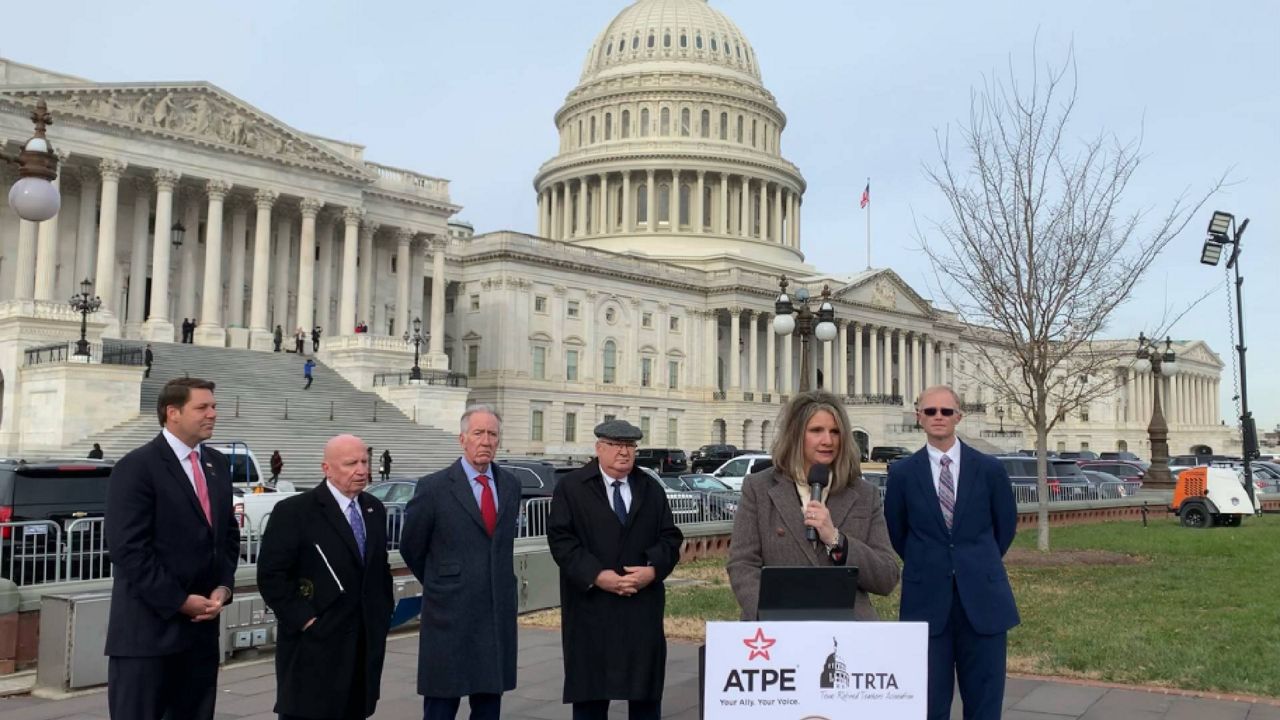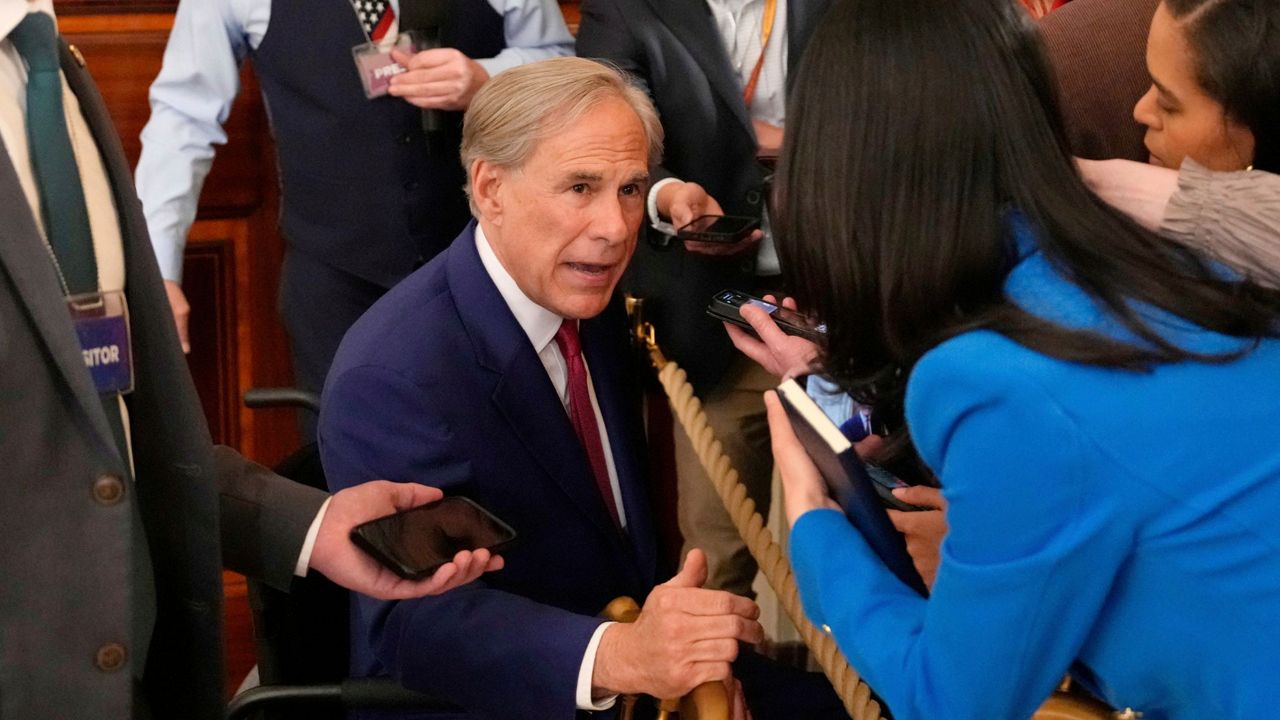Congressman Kevin Brady is taking one last swing at fixing a glitch in the Society Security system that stops many teachers, firefighters and police officers from claiming Social Security retirement benefits.
Congress cut Social Security benefits to many public servants in the 1980s, convinced that public pensions would be more than adequate to provide retirement income. Most school districts in Texas do not allow paycheck withdrawals for Social Security, with a few notable exceptions. In theory, teachers make no contributions, so they receive no benefits.
But many retired schoolteachers, like Mary Widmier, paid into the Social Security system for the 40 quarters necessary to draw down benefits through outside and secondary employment.
“I believe my story is like so many others. I started working at the age of 16. I put myself through college, actually working at NASA during the beginning of the space program. And it was after that, that I decided that my true calling was to be a public school teacher,” Widmier said on Wednesday during a news conference on Capitol Hill. “So I finished my degree and started teaching school. And, of course, like everybody else, I had to work evening jobs, weekend jobs and full-time jobs every summer, just to make ends meet.”
But when it came time for Widmier to retire from Humble Independent School District — after 36 years as an educator and 21 years of outside work — she realized she would get little to no benefits from that outside employment because of what is called the Windfall Elimination Provision.
“Think about the thousands of public educators out there, those that genuinely want to make a difference and be in the classroom. They want to make teaching their lifelong career,” Widmier said. “We’re not asking for more than we pay into the system. We’re only asking that there be a more equitable formula for calculating our benefits.”
Those two words — “equitable formula” — are the key to the challenges around the Windfall Elimination Provision or WEP. WEP is a formula based on expected retirement income. The way to avoid the so-called windfall in the Windfall Elimination Provision was to calculate benefits in a way that would presume a public servant’s pension fund was sufficient.
Unfortunately, pension funds for teachers in Texas are rarely sufficient. The median monthly income for a retired teacher in Texas is around $2,000 a month. Teachers have gotten a 13th check during some recent legislative sessions, but lawmakers have not approved a cost-of-living adjustment since 2004.
“Texas is a state with no cost-of-living raises built into their modest state pension benefits,” said Tim Lee of the Texas Retired Teachers Association. “Half of all current TRS retirees have never had a raise, and more than 130,000 TRS retirees in Texas live on a pension of $1,000 per month or less.”
Retired teachers — and those who have yet to retire — need a WEP solution, Lee said.
The challenge, however, has been in the details. Or, more accurately, the calculations. Brady, who also addressed the media, called a solution for WEP — one that provides supplemental but not excessive benefits — to be a “Rubik’s Cube” challenge.
Brady, a Republican from The Woodlands, was the lead House negotiator on the sweeping tax cut package in 2017. He’s served 26 years in Congress and will retire this year. Despite the support of ranking Democrat Richard Neal in Massachusetts, the Ways & Means Committee has failed to pass a viable solution to WEP.
“Police and teachers and firefighters have done nothing wrong… They just happened to pay into a Social Security substitute,” Brady said. “Then they work a second job, or a third job, or a first career or last career, and they earn fully there. It’s so unfair, the way they are treated under this 1984 law.”
Benefits can be cut up to $500 a month under WEP, Brady said. “That is a lot money — a ton of money, especially for people who didn’t get paid much during their career anyway,” he added.
Progressive groups like the Center on Budget and Policy Priorities are opposed to a sweeping removal of WEP, citing a 10-year price tag of $150 billion, but the group does express openness to an adjusted formula from Brady and Neal.
None of that may matter, however, during this lame-duck session. Neal, asked directly if he had the votes for a WEP solution, could only admit the two sides had found common ground.
“We’re close to something. That’s the reality. But at the same time, this is one of those issues, the more you explain it, the more complicated it gets,” Neal said, adding that even media in Brady’s hometown of Houston often presented WEP with inaccuracies. “The people we’re talking about paid in the necessary quarters to Social Security. They should draw the benefit, based upon the promise of Social Security.”
Brady sent a final letter to Neal, the current chair of House Ways & Means. It can be found here.










